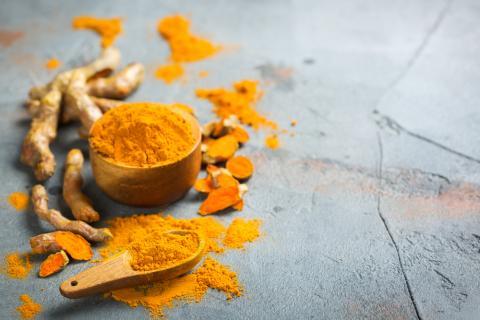
Many people falsely believe that endurance athletes must consume entire sides of beef or rack after rack of ribs to rebuild muscle and revitalize energy post-exertion. While meat products do contain a complete blend of amino acids—the building blocks of protein—those who prefer compassion in their food can still derive all the nutrients they need to heal from plant-based sources.
While it's true that vegans must work a bit harder to get sufficient protein for optimal performance, that doesn't mean living on a diet of protein shakes. In fact, the following five natural foods help marathoners and triathlon champions rebuild vital tissue so that they can achieve peak fitness without sending a single cow or chicken to slaughter.
1. Smooth Running
When it comes to post-run recovery, smoothies make for delicious and nutritious body fuel. Savvy smoothie makers know they can blend anything into a delicious, creamy treat that tastes more like a milkshake than a dose of medicine.
There are a ton of vitamin and mineral supplements as well as protein powders that runners on-the-go can easily blend with their favorite juices or milk. Many runners choose to begin the day with a hearty and thick protein shake that keeps cravings at bay while providing the energy needed from breakfast. A touch of fresh fruit provides a sweet taste as well as a vitamin boost.
2. Get Nutty
Nuts and seeds feed hungry runners and sate them with sufficient protein stores. Vegan athletes do well to add as many nuts and seeds into their diets as possible. In addition to protein, some forms of nuts and seeds likewise pack a serious fiber and healthy fat punch.
Some studies suggest that consuming almonds helps to fight against heart disease and Type II diabetes, though the evidence remains inconclusive. No doubt exists, however, that almonds contain roughly a third of the recommended daily allowance of vitamin E, which aids in muscle recovery.
Walnuts, likewise, contain high amounts of vitamin E as well as a large amount of muscle-building protein. In addition, many studies show that eating walnuts helps to decrease inflammation, the culprit behind many running-career-ending diseases such as arthritis.
Looking to consume a full quarter of your daily magnesium requirement? Choose Brazil nuts. Brazil nuts contain high levels of magnesium per serving. Magnesium helps to regulate mood, keeping exercisers motivated for that early-morning run. Magnesium supplementation eases migraine pain as well.
Don't skimp on seeds either! Pumpkin seeds contain protein and also fuel the body with rich, filling fiber. Sunflower seeds create a delightful crunching sensation without the hollow calories of chips or crisps—they contain healthy fats imperative to brain and nerve function.
3. Turmeric For Runner's Knee
When it comes to nutritional medicinals, turmeric makes for a runner's best friend. Did you know that your knee absorbs five times your body weight every time you go for a run? This spice, used in many traditional Indian dishes (and easy to add to your own recipes), heals torn muscle fibers and even knits injured ligaments and tendons back together.
4. Killer Kale
Kale and other deep green leafy vegetables such as spinach provide vitamins and minerals galore with only a negligible number of calories. Active adults exhausted from a long run Saturday do well to refuel with crisp, crunchy salads rich in deep green veggies.
Kale naturally introduces protein and additional fiber into vegan diets. Deep green veggies make for a delicious addition to sandwiches and wraps as well as salads, so vegans can utilize kale as their "meat," while carnivores opt for kale as a tasty add-on.
5. A Bowl Of Better Beans
Vegan runners feasting on three bean salads pump up their protein stores considerably. Beans provide a low-calorie and cruelty-free protein boost. Because of the high protein levels found in beans, legumes keep blood sugar stable longer, eliminating cravings.
Some research indicates that eating beans may ward off cancer and reduce inflammation. Those who find that they suffer from an intolerance to beans should try cooking theirs a bit longer, at least 10 minutes, prior to eating. Doing so breaks down the lectin in the beans, which is the protein that makes them cause embarrassing gas.
Run Strong, Run Cruelty-Free!
Just because an endurance athlete switches to a vegan diet doesn't mean they need to lag behind their race opponents. The right combination of foods completes the body's protein needs without harming animal life. By incorporating the best plant fiber and protein, vegan athletes may even find themselves running circles around their carnivorous competitors!








